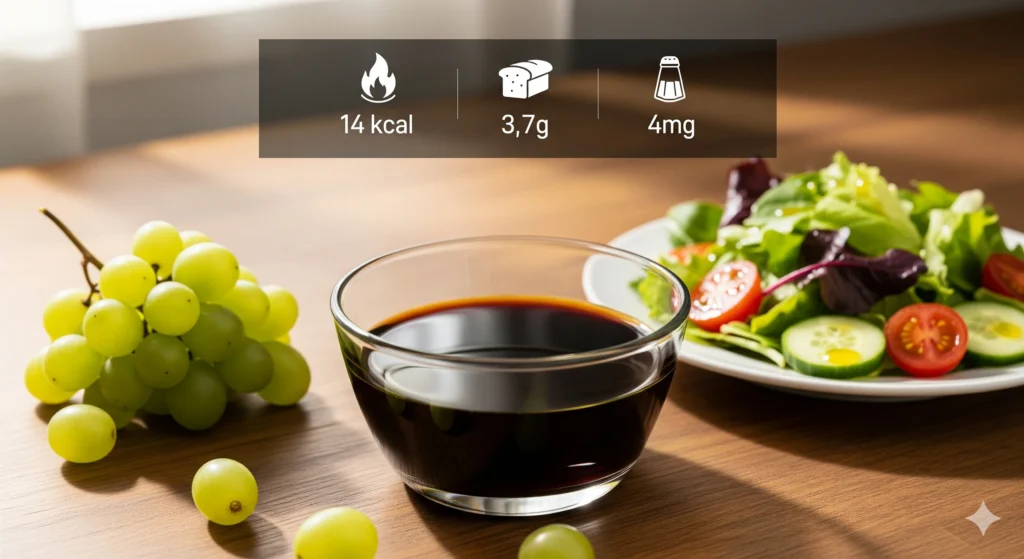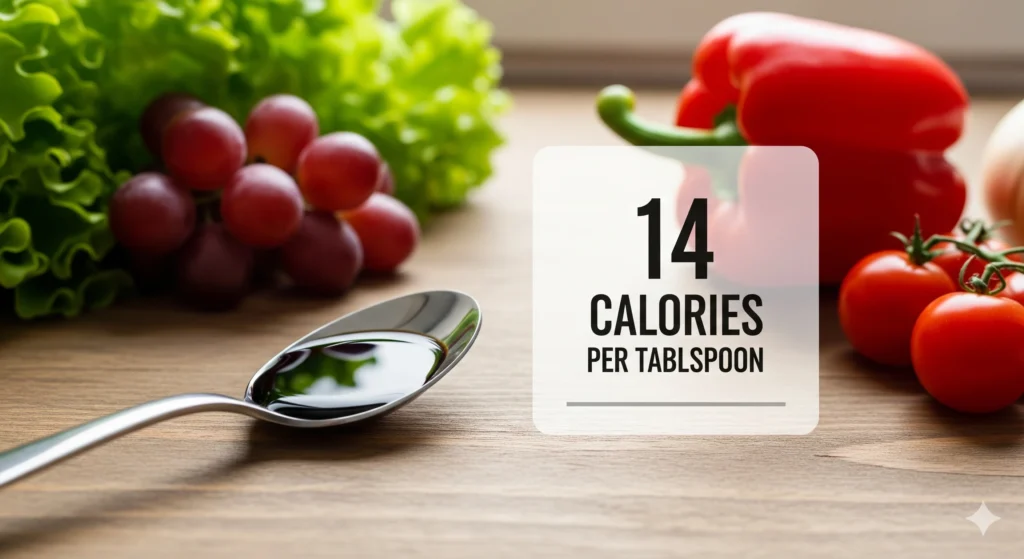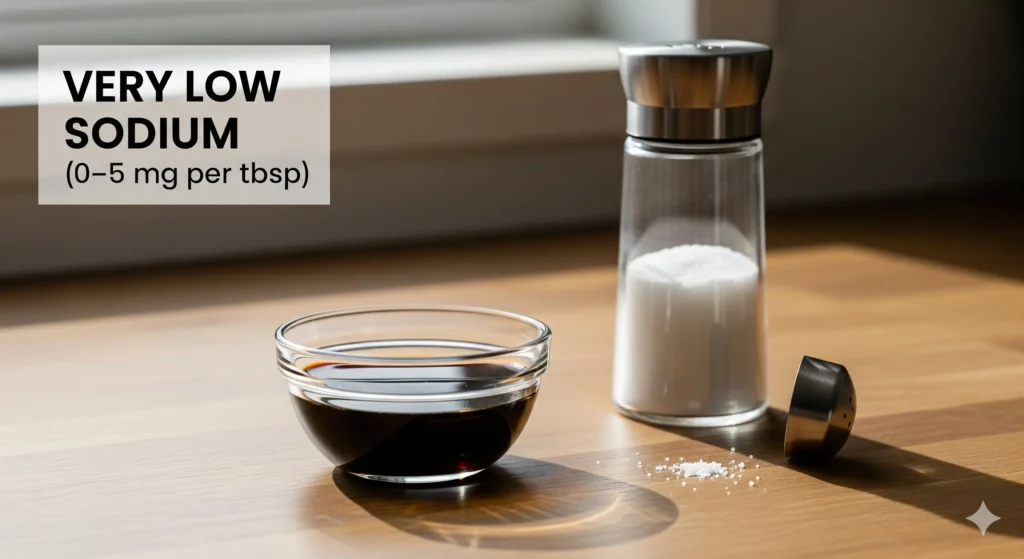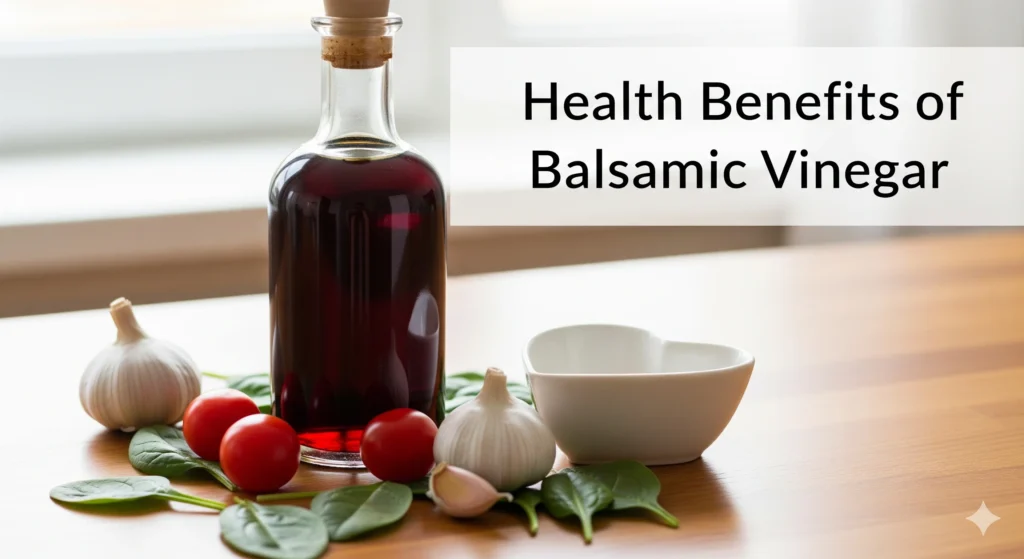Balsamic vinegar has been loved for centuries for its rich flavor and versatility in cooking. From salad dressings to marinades, it adds depth without relying on heavy oils or creams. But with so many people becoming more health-conscious in 2025, there’s a growing interest in the nutrition facts for balsamic vinegar.
Is balsamic vinegar really a healthy choice? How many calories or carbs does it have? Does it contain sodium or hidden salt? And how much can you safely consume per day? In this detailed guide, we’ll explore everything you need to know about balsamic vinegar—calories, sodium content, carbohydrates, health benefits, and daily recommendations—using scientific data and expert health sources.
Nutritional Value of Balsamic Vinegar

When it comes to the nutritional value of balsamic vinegar, the first thing to know is that it’s made from concentrated grape must. This gives it a sweet, tangy flavor and a natural sugar profile that differs from other vinegars like apple cider or white vinegar.
Here’s a quick nutrition table per 1 tablespoon (15 ml):
| Nutrient | Amount (per 1 tbsp) | Notes |
|---|---|---|
| Calories | ~14 kcal | Low compared to dressings and sauces |
| Carbohydrates | ~3 g | Mostly natural sugars |
| Protein | 0 g | Not a protein source |
| Fat | 0 g | Fat-free |
| Sodium | 0–5 mg | Very low, almost salt-free |
| Potassium | ~18 mg | Trace amount |
| Calcium, Iron, Magnesium | <1% Daily Value | Minimal contribution |
| Polyphenols (antioxidants) | Present | Supports health benefits |
(Source: WebMD, Healthline)
As you can see, balsamic vinegar is extremely low in calories, fat-free, and virtually sodium-free. Its main nutrient contribution comes from natural carbs and antioxidants.
Calories in Balsamic Vinegar

Balsamic vinegar is widely appreciated not only for its rich, tangy flavor but also for its light nutritional profile. Many people who are conscious about their calorie intake often wonder how much energy this vinegar actually adds to their meals. Luckily, balsamic vinegar is one of the most diet-friendly condiments, offering taste without piling on too many calories.
How Many Calories in Balsamic Vinegar?
One tablespoon of balsamic vinegar contains about 14 calories, which makes it a great low-calorie option for flavoring foods.
Calorie Content of Balsamic Vinegar vs. Other Vinegars
Compared to apple cider vinegar or white vinegar, balsamic is slightly higher in calories because of its grape sugar content. However, the calorie content of balsamic vinegar is still much lower than creamy dressings or sauces like ranch or mayonnaise.
Calories in White Balsamic Vinegar
White balsamic vinegar has almost the same calorie count, usually around 12–14 calories per tablespoon, depending on the brand. It’s lighter in color but nutritionally similar.
Carbohydrates in Balsamic Vinegar
Each tablespoon has about 3 grams of carbohydrates, mainly from natural sugars. If you’re following a low-carb diet, balsamic vinegar is still suitable because the carbs per serving are minimal.
Sodium Content in Balsamic Vinegar

When it comes to maintaining heart health and controlling blood pressure, sodium intake plays a very important role. That’s why many people who enjoy adding balsamic vinegar to their salads, marinades, or sauces often ask whether this popular condiment contains a significant amount of sodium. The answer is reassuring for those on a low-salt diet.
Does Balsamic Vinegar Have Sodium?
The good news is that plain balsamic vinegar is very low in sodium. A tablespoon typically contains 0–5 mg of sodium.
Is Balsamic Vinegar High in Sodium?
No, it is not high in sodium. In fact, compared to salad dressings and sauces, balsamic vinegar is almost sodium-free. This makes it a healthier option for people with high blood pressure or those watching salt intake.
Does Balsamic Vinegar Have Salt?
Traditional balsamic vinegar doesn’t include added salt. If you find higher sodium levels on the label, it’s likely because the vinegar was blended with other seasonings.
Sodium in White Balsamic Vinegar
Similar to dark balsamic vinegar, white balsamic has negligible sodium—generally under 5 mg per serving.
Health Benefits of Balsamic Vinegar

Beyond its tangy taste and culinary uses, balsamic vinegar offers several potential health benefits backed by research. From supporting blood sugar balance to promoting heart health, it has become a favorite ingredient for those looking to add both flavor and nutrition to their meals.
1. Supports Blood Sugar Control
Research shows that vinegar may improve insulin sensitivity and help stabilize blood sugar after meals. This makes balsamic vinegar a good addition for people managing type 2 diabetes.
2. Heart Health & Blood Pressure
Because balsamic vinegar is low in sodium and rich in polyphenols, it may support cardiovascular health. Polyphenols are known to reduce oxidative stress, which can help protect against heart disease.
3. Weight Management
Since balsamic vinegar is low in calories and fat-free, it can add flavor without increasing caloric intake, supporting weight management goals.
4. Digestive Support
The acetic acid in vinegar can promote healthy gut bacteria, aiding digestion.
5. Antioxidant Benefits
The polyphenols in balsamic vinegar may reduce free radical damage, which is linked to aging and chronic disease.
How Much Balsamic Vinegar Per Day?
While balsamic vinegar is healthy, moderation is key. Having too much can cause stomach discomfort or affect tooth enamel due to its acidity. Knowing the right amount helps you enjoy its benefits without side effects.
Recommended Intake
Experts suggest 1–2 tablespoons per day is a safe and beneficial amount.
Risks of Overconsumption
- Tooth enamel erosion: Due to acidity
- Stomach irritation: If consumed in excess
- Acid reflux: In sensitive individuals
Best Practices
- Mix balsamic vinegar with olive oil for dressings
- Use as a marinade or glaze instead of pouring directly
- Rinse your mouth with water after consumption to protect teeth
Practical Uses in Cooking
- Salad Dressing: Combine with olive oil, mustard, and herbs
- Marinade: Use for chicken, beef, or roasted vegetables
- Fruit Glaze: Drizzle over strawberries or peaches for a gourmet twist
- Soup & Stew Enhancer: A splash adds depth without extra salt
- Sandwich Flavoring: Replace mayonnaise or ketchup for fewer calories
Comparing Balsamic Vinegar with Other Vinegars
- Apple Cider Vinegar: Fewer carbs, but less flavor depth
- White Vinegar: Zero calories but no antioxidants
- Rice Vinegar: Similar calories, sweeter taste
Balsamic vinegar stands out because of its unique flavor, polyphenol content, and slightly higher natural sugars.
Final Thoughts
The nutrition facts for balsamic vinegar show why it remains a staple in kitchens worldwide. With about 14 calories, 3 grams of carbs, virtually no sodium, and plenty of antioxidants per tablespoon, it’s both flavorful and health-friendly.
When consumed moderately, balsamic vinegar supports weight management, heart health, and blood sugar balance—all while enhancing meals without excess salt or fat. Just remember: moderation is key.
So next time you’re looking to boost flavor without adding calories or sodium, reach for balsamic vinegar—it’s one of the healthiest condiments you can add to your diet in 2025.
FAQs
Q1: How many calories are in balsamic vinegar per tablespoon?
Around 14 calories per tablespoon.
Q2: Is balsamic vinegar high in sodium?
No, it contains less than 5 mg of sodium per serving.
Q3: Does balsamic vinegar have carbs?
Yes, about 3 grams of carbs per tablespoon.
Q4: Is white balsamic vinegar healthier?
Nutritionally it’s almost the same as dark balsamic vinegar.
Q5: How much balsamic vinegar per day is safe?
1–2 tablespoons per day is generally safe and beneficial.
Disclaimer: The content on Wellbeingdrive is for informational purposes only and not a substitute for professional advice. Always consult a qualified expert for health concerns.

